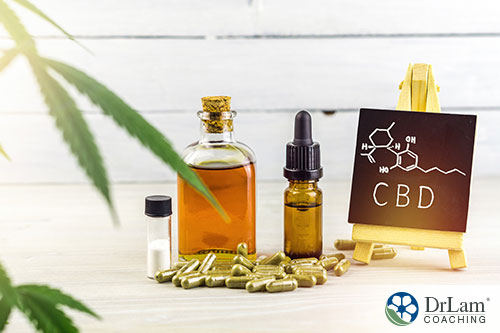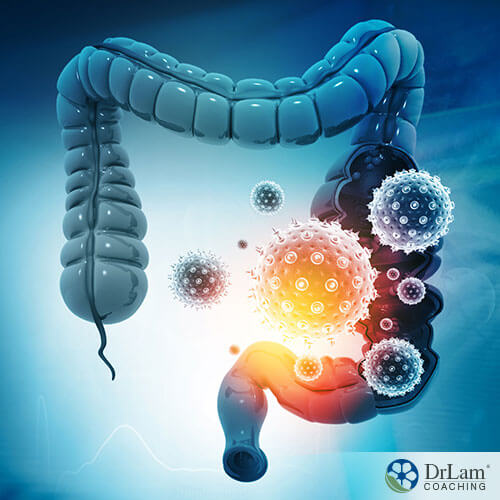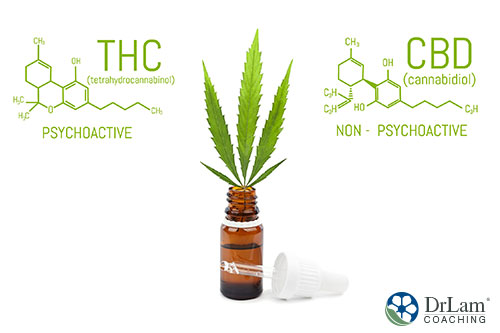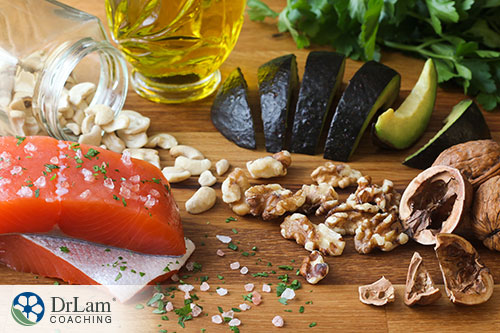 Cannabidiol, or CBD, has recently exploded on the market all over the world. People are using it for a variety of purposes, such as for anxiety relief, managing pain, promoting sleep, improving memory, and even helping with depression, bipolar disorder, and schizophrenia. Some people are also looking into using CBD oil for children with anxiety and/or ADHD, and this of course raises questions about its safety and effectiveness.
Cannabidiol, or CBD, has recently exploded on the market all over the world. People are using it for a variety of purposes, such as for anxiety relief, managing pain, promoting sleep, improving memory, and even helping with depression, bipolar disorder, and schizophrenia. Some people are also looking into using CBD oil for children with anxiety and/or ADHD, and this of course raises questions about its safety and effectiveness.
CBD is actually one of many active compounds that can be extracted from the cannabis sativa (marijuana) plant, though it and delta-9-tetrahydrocannabinol (THC) are the two most popular and most used. But the two are quite different, with THC being the compound that gives the “high” that comes with marijuana consumption, while CBD does not. This also means that CBD doesn’t have some of the issues of THC that could be of concern, such as changes in behavior or withdrawal symptoms.
Both of these compounds work on the human endocannabinoid system (ECS), which is a neuro-modulatory system that’s even older than the brain. It’s part of all your organs and tissues, and it supports many different systems and functions, such as metabolism, energy, appetite, immunity, sleep, temperature, stress responses, and homeostasis.
The ECS is made up of endogenous cannabinoids (that our bodies can naturally produce), cannabinoid receptors, and enzymes that synthesize and degrade the endocannabinoids. The ECS is the reason we are so receptive to external cannabinoids - because we have a built-in mechanism for using them.
Two of the most abundant cannabinoid receptors in the human body are the CB1 and CB2 receptors. CB1 is more involved with the central nervous system, and CB2 is more involved in the peripheral nervous system. THC is able to bind to both types of receptors. On the other hand, CBD doesn’t actually bind to them, but it does indirectly modulate them and thus has its own effects on the central and peripheral nervous systems.
Being such an integral part of your physiological responses, it can be very useful to direct your ECS to help with physical and mental health. But, for the same reason, it also must be directed in a judicious way, keeping in mind safety concerns and long-term effects. This is especially the case when talking about children, as their brains and nervous systems are not yet fully developed and established, and so are more susceptible to both negative and positive influences.
This article will focus on CBD oil for children. It’s not recommended to use THC products for them. In addition, there are some other supplements and lifestyle changes that can help with ADHD and also stimulate the ECS to produce endogenous cannabinoids, so if you decide that you’d rather not take the risk with CBD oil for children, you can try some of these other options instead.
Other than the ECS, there are several systems that have an effect on the physiological stress responses in the body and can also be directed to help with physical and mental health issues. These systems are organized into a unified stress response called the NeuroEndoMetabolic (NEM) Stress Response, which is composed of six circuits: The Hormone, the Bioenergetics, the Neuroaffect, the Cardionomic, the Inflammation, and the Detoxification circuits.
When dealing with the ECS, or any other system that directly affects the nervous system, the primarily concerned circuit is the Neuroaffect circuit of the NEM. This circuit is made up of the brain, the autonomous nervous system (ANS), and the microbiome.
 The last component – the microbiome – can give you some clues on supplements, natural remedies, and practices that can help your child with anxiety and ADHD, as will be discussed in more detail later. This is especially helpful because the three Neuroaffect circuit components use neurotransmitters to communicate, and a large chunk of neurotransmitters are produced in the gut.
The last component – the microbiome – can give you some clues on supplements, natural remedies, and practices that can help your child with anxiety and ADHD, as will be discussed in more detail later. This is especially helpful because the three Neuroaffect circuit components use neurotransmitters to communicate, and a large chunk of neurotransmitters are produced in the gut.
But the Neuroaffect circuit is not activated in isolation; it is part of the global NEM response, with the adrenal glands being the first and main responders when stress is present in the body. Anxiety and ADHD in children are not only aggravated by stress; these conditions can be triggered by stress, and they can also add a lot of stress on the body. So we must also look at the adrenal glands when dealing with such issues in a holistic way.
Although adrenal fatigue is much more readily detectable in adults, it can and does affect children as well, especially if they are given certain medications that can be over-stimulating for their nervous systems and stress responses. With ADHD, the usual medications prescribed, such as Ritalin or Adderall, are indeed stimulants and amphetamine-based, and they do have significant side-effects.
For example, they can actually exacerbate anxiety and insomnia, causing more and more stress on the body, and by extension on the adrenal glands and the NEM, which can aggravate ADHD even more. Seeing these side-effects, and worrying about the long-term use of such medications, many parents are looking for more natural solutions, such as certain types of diets and supplements, including using CBD oil for children.
But natural remedies that have medicinal properties, including CBD, should always be used with caution, as they are still medicinal, even if natural.
Although ADHD is one of the most commonly diagnosed mental health conditions in children, with one out of twelve American kids being given that diagnosis, at this time, using CBD oil for children with ADHD is not yet a well-researched area, and so we don’t have enough studies that can tell us whether it’s effective or not.
The studies that are available are more to do with the use of CBD for certain symptoms and comorbidities that can accompany ADHD, anxiety and insomnia in particular. Also, CBD oil for children can be used to counteract some of the negative side-effects of the stimulants that are given for ADHD. For example:
Other side-effects that these medications can bring about include dizziness, nervousness, and even psychosis, which is why many parents are looking for ways to either replace them or at least balance them out. It’s important to remember that although CBD oil, if from a reputable source, is generally safe, it can interact with these medications, or any other medications your child is taking. CBD oil can also add to the load on their liver, because they are both metabolized in the liver.
CBD is not a magic bullet, and there is no evidence that it can have a positive effect on the other issues that come with ADHD, such as hyperactivity, impulsivity, or the lack of concentration. But, again, these issues can be improved indirectly, through a healthier diet, better sleep, and reducing anxiety.
And although CBD does this partly through the ECS, it also affects non-cannabinoid receptors, including those for dopamine and serotonin, two very important neurotransmitters that impact the nervous system at large, but also more specifically the Neuroaffect circuit.
The way CBD oil does this is by blocking the reuptake of these two neurotransmitters – meaning, it helps them stay balanced in the system rather than allowing them to circulate in excess – and this is how it allows for better sleep and more relaxation.
There are a few things to keep in mind when thinking of using CBD oil for children. For example, although it can help with sleep, if your child becomes used to it, he/she can rely on it to the point that it becomes difficult to fall asleep without it. That may also be the case for its other uses, and your child may develop a tolerance for it, needing more and more of it in order to get the same benefits.
Other concerns include the quality and concentration of the CBD product. CBD products are not strictly regulated, and so you can’t be sure if what is being advertised by the company producing them is actually true, whether in regards to the amount/concentration of CBD in the product or what other substances may be included in it.
 Some products may contain THC, which is the component in cannabis that is intoxicating, and something you should keep away from your children. Some products may even contain contaminants that could pose safety risks.
Some products may contain THC, which is the component in cannabis that is intoxicating, and something you should keep away from your children. Some products may even contain contaminants that could pose safety risks.
And lastly, their advertised benefits may not be scientifically-backed. There really are very few studies showing the benefits of using CBD oil for children with ADHD, and so if you see products with sensational claims, you should be wary.
The best way to counteract these concerns is to do your research and always consult your child’s doctor before trying any of these products out. Seek out products that your doctor approves of, and read a lot of reviews, especially complaints, that may have been made about the product or company in question.
The other issue you’ll need to discuss with your child’s doctor is the dosage of CBD oil, because not only are concentrations of CBD different in different products, but the absorption and impact of CBD can differ from child to child, depending on their age, weight, height, and sex.
Because CBD is ultimately broken down by the liver, long-term effects on liver function are not known. Those with a family history of liver congestion should be especially careful.
If oil is not suitable for your child, there are CBD drops, gummies, and capsules, and each one will, again, need to be evaluated for dosage and quality.
If you decide not to use CBD oil for children, there are other ways to help your child with anxiety and ADHD. And many of them will involve supporting the ECS as well as the Neuroaffect circuit of the NEM.
First, a healthy diet is key. That’s because there are many foods that can be inflammatory and excitatory for your child’s system. Sugar, for example, can increase hyperactivity and then lead to a crash later on, so you’ll want to avoid it as much as possible. Gluten can have neurotoxic effects, even if your child doesn’t exhibit gastrointestinal symptoms of gluten sensitivity.
A whole-food anti-inflammatory diet that is rich in healthy fats, proteins, and complex carbohydrates can really go a long way for your child’s physical and mental health. You’ll probably have to make such changes gradually and with patience, since processed and sugary foods are addictive, and your child may not take too kindly to them being cut out. But eventually, his/her body will adapt and reap the benefits. Plus, a healthy diet is the cornerstone of adrenal fatigue recovery, which is another important component in dealing with anxiety and ADHD.
 Omega-3 fatty acids are essential for making endocannabinoid cofactors, and so they can really help the ECS function optimally. You can give your child an omega-3 supplement, or up their intake of it by adding more wild-caught fish, sea vegetables, flax seeds, and chia seeds in their diet. Make sure the supplement contains EPA as well as DHA, as EPA has more beneficial effects for anxiety.
Omega-3 fatty acids are essential for making endocannabinoid cofactors, and so they can really help the ECS function optimally. You can give your child an omega-3 supplement, or up their intake of it by adding more wild-caught fish, sea vegetables, flax seeds, and chia seeds in their diet. Make sure the supplement contains EPA as well as DHA, as EPA has more beneficial effects for anxiety.
Sleep hygiene routines are also very helpful to calm your child down before bed, so if your child gets screen time, make sure it’s during the day rather than at night. They need to wind down a couple of hours before bed. Keep their rooms cool and dark, and have a night light on for them in the bathroom or hallway in case they get up to use the toilet at night, to avoid blue light in the bedroom.
Whether you decide to use CBD oil for children or not, these suggestions are helpful practices regardless, as they can really improve your child’s health and wellbeing, and by extension, your own as well.
© Copyright 2020 Michael Lam, M.D. All Rights Reserved.
Although cannabis products can sound a little controversial, and the studies on CBD oil for children are still limited, the studies that are available show some promising results, especially for mitigating medication side effects. But there are still some precautions you need to take if you intend to use it for your child’s ADHD or anxiety.
